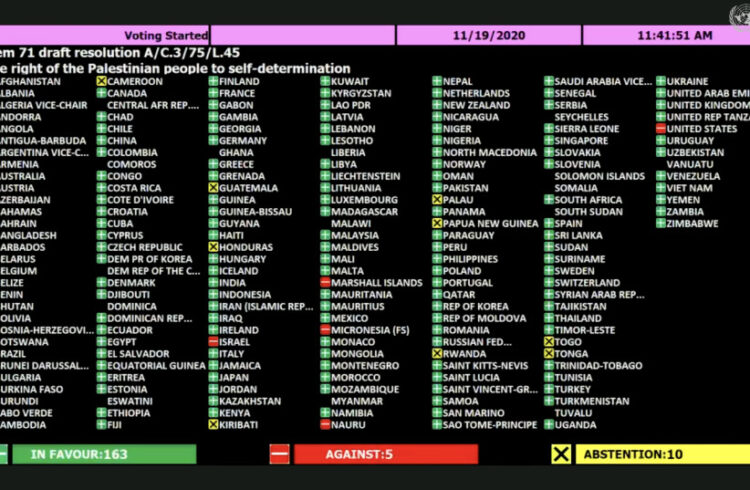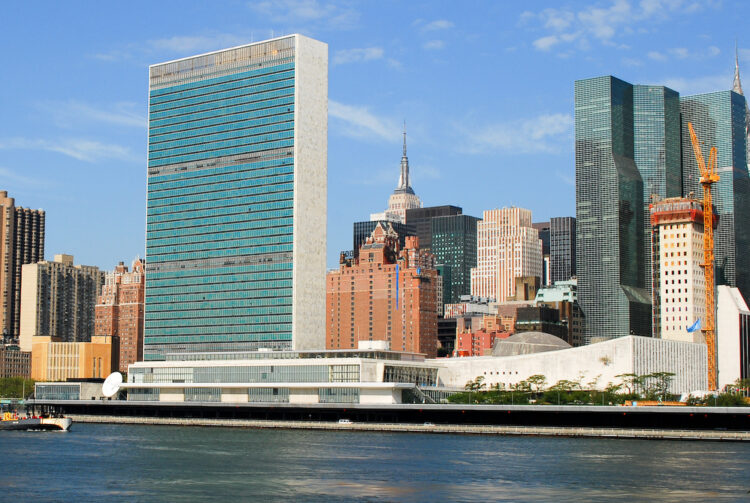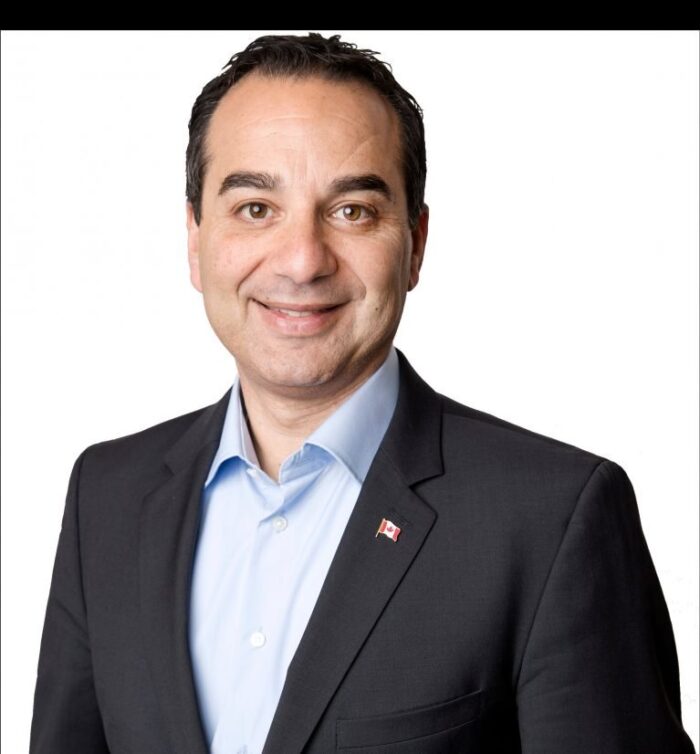The leaders of two major Jewish organizations in Canada, in seamless lockstep with the Israeli government, have condemned Canada’s support of a recent United Nations draft resolution favoring a two-state solution. Passed by the General Assembly’s Third Committee by a lopsided margin of 163 to 5, with 10 abstentions, the motion was opposed by Israel, the United States, the Marshall Islands, Micronesia and Nauru.
Blindly rushing to the defence of Prime Minister Benjamin Netanyahu’s government, which has shown no genuine interest in a fair and balanced resolution of Israel’s conflict with the Palestinians, Shimon Koffler, the president of the Center for Israel and Jewish Affairs, said, “The government of Canada has now doubled down on its incomprehensible support for a resolution that simply expands the anti-Israel narrative within the United Nations system.”

Michael Levitt, a former Liberal Party parliamentarian and the president of the Friends of Simon Wiesenthal Center, responded with the same misleading reaction. As he declared, “By supporting this resolution, Canada is providing ammunition to those who seek to delegitimize and demonize the State of Israel, which ultimately sets back the prospects for peace in the region.”

The resolution in question, put to a vote November 20, underlined “the right of the Palestinian people to self-determination, including the right to their independent State of Palestine.” It also “stressed the urgency of achieving without delay an end to the Israeli occupation that began in 1967 and a just, lasting and comprehensive peace settlement between the Palestinian and Israeli sides” based on a two-state solution.
Canada supported an almost identical United Nations resolution in 2019, breaking with its previous policy of voting against such resolutions. Ottawa shifted its position during the premiership of Stephen Harper.

The Canadian government’s decision to back Palestinian self-determination within the framework of an Israeli withdrawal from the West Bank and a resolution of Israel’s conflict with the Palestinians should be regarded as a principled one. Canada’s endorsement of Palestinian statehood falls within the broad parameters of Canadian policy, and is in accord with the policy of the vast majority of United Nation member states.
As Bob Rae, the newly-installed Canadian ambassador to the United Nations, explained, “Canada’s vote is a reflection of our longstanding commitment to the right of self-determination for both Palestinians and Israelis. From the time of the earliest resolutions of the Security Council on these issues, we have endorsed the principle of ‘two states for two peoples.’”
Rae added that Canada “does not and will not support any resolution that unfairly singles out Israel for criticism.” As he put it, “We will continue to oppose these resolutions and initiatives which do not speak to the complexities of the issues or seek to address the actions and responsibilities of all parties, including the destructive role in the conflict of such terrorist organizations as Hamas, Palestinian Islamic Jihad, and Hezbollah, that have refused to accept the legitimacy of the State of Israel and routinely use violence targeting civilians.”
Contrary to Koffler’s and Levitt’s claims, the United Nations resolution that Canada backed is not anti-Israel. Nor was it an attempt to delegitimize or defame Israel.
The resolution was rather a clear signal expressing support for Palestinian statehood, a prerequisite for peace in the region, and reinforcing the point that Israel’s 53-year occupation of the West Bank, with its array of Jewish settlements and outposts, is morally and politically unacceptable and a formidable obstacle to the attainment of peace.

Apologists like Koffler and Levitt are agents of the untenable status quo, and are tacitly complicit in perpetuating an occupation that exacerbates the Arab-Israeli dispute and should have ended years ago.
Canadian policy should not be swayed or influenced by their self-serving and unjustifiable bleatings.
Nor should they be under the false impression that their right-wing views are necessarily representative of Jewish Canadians.
